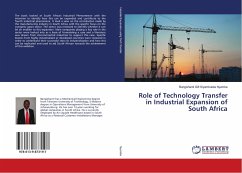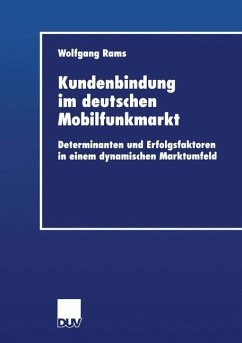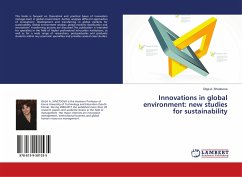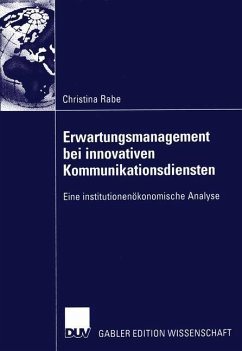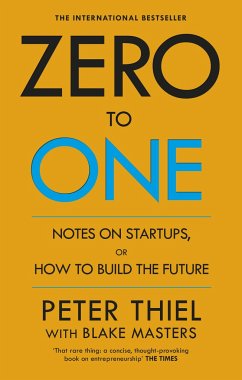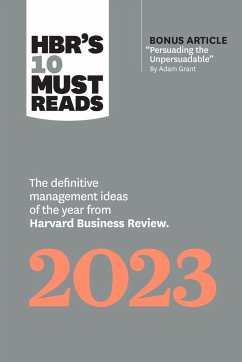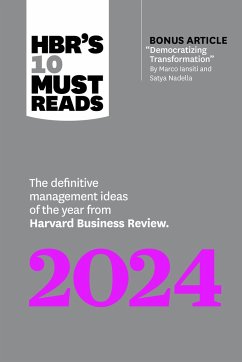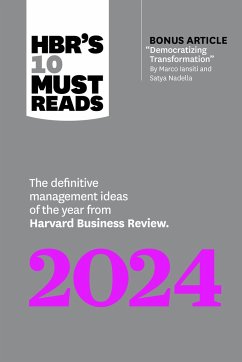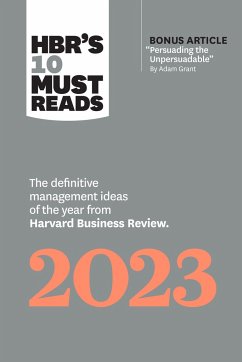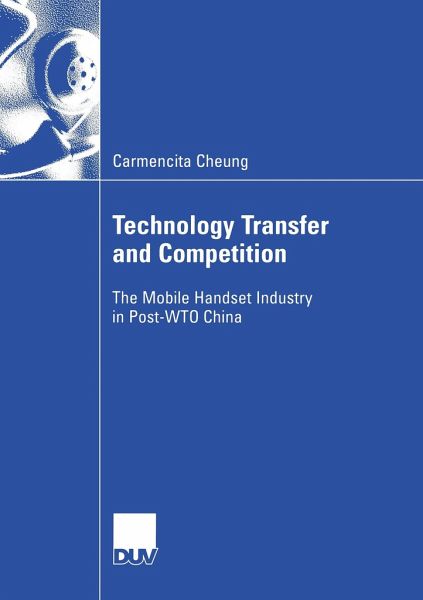
Technology Transfer and Competition
The Mobile Handset Industry in Post-WTO China
Mitarbeit: Reitsperger, Wolf
Versandkostenfrei!
Versandfertig in 1-2 Wochen
77,99 €
inkl. MwSt.

PAYBACK Punkte
39 °P sammeln!
Carmencita Cheung examines the "forced" technology transfer policy China allegedly imposes on foreign investors. She shows that, in addition to changes brought about by China's WTO accession, the concurrence of industry evolution and generational migration plays a key role in shaping technology transfer decisions. The findings also shed light on China's technology policy and its concerted efforts to set technical standards in the global information and communication technology industry.
The author's doctoral dissertation, which is the basis of this book, focuses on China's high-tech ambitions and the technology transfer to China by Western multinational corporations. It examines the tradeoffs associated with technology transfer and the promises of access to a huge potential market in the context of China's accession to the World Trade Organization, which may mitigate these tradeoffs. The empirical study, which provides some of the insights gained by the author, provides the backdrop for discussion and analysis. The analysis presented exceeds by far the sometimes flat and insufficient arguments presenting Chinese government strategists as captives of their cultural dispositions and Western firms as pawns having to adapt their policies to these cultural dispositions. The analysis presented stands out by being based on a thorough understanding of China, the industry investigated and the strategies pursued by the Chinese and by multinational corporations. It is the basis for future research and an invaluable resource for potential entrants into the Chinese market as well as those who are already there. Prof. Dr. Wolf Reitsperger Professor of International Business and Management University of Hamburg v Preface This project would not have been possible without the support and assistance of many people. I wish to thank Professor Wolf Reitsperger, my dissertation supervisor, for his inspiration, guidance and patience. Without his unfailing support, I would not have had the courage to experiment; without the insights he shared, I could not have learned so much from the mistakes I made.



